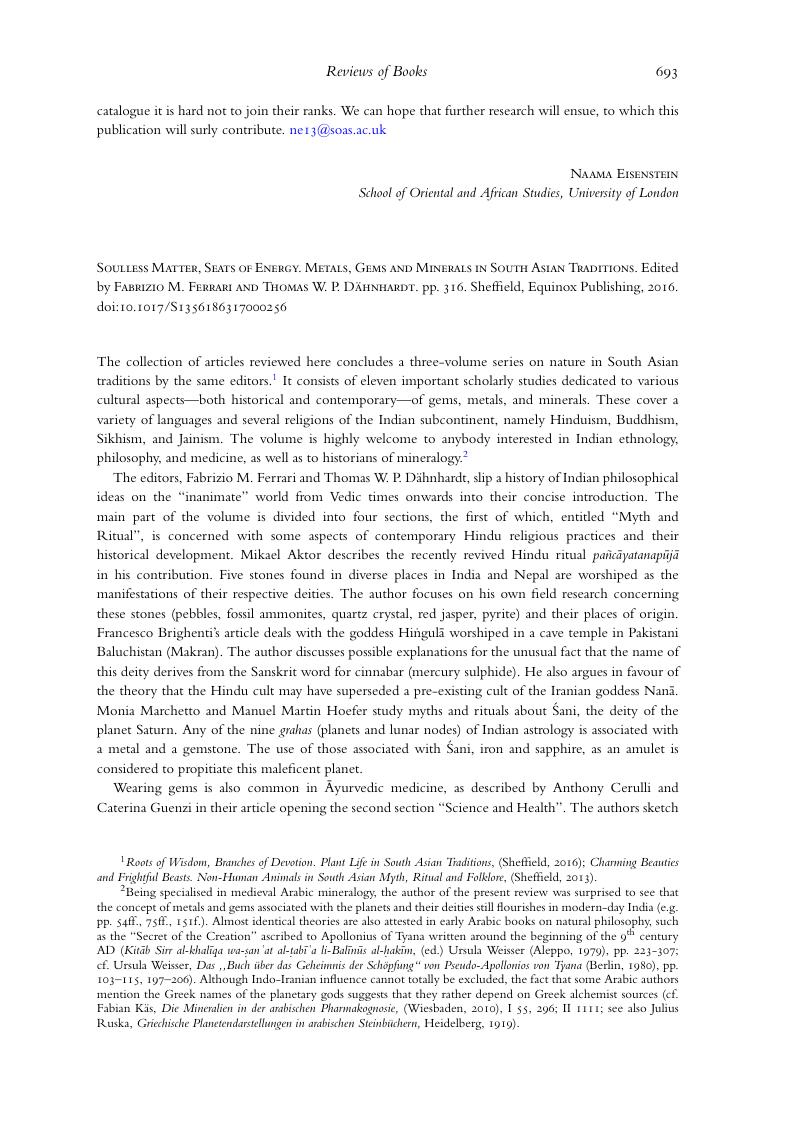No CrossRef data available.
Published online by Cambridge University Press: 08 August 2017

1 Roots of Wisdom, Branches of Devotion. Plant Life in South Asian Traditions, (Sheffield, 2016); Charming Beauties and Frightful Beasts. Non-Human Animals in South Asian Myth, Ritual and Folklore, (Sheffield, 2013).
2 Being specialised in medieval Arabic mineralogy, the author of the present review was surprised to see that the concept of metals and gems associated with the planets and their deities still flourishes in modern-day India (e.g. pp. 54ff., 75ff., 151f.). Almost identical theories are also attested in early Arabic books on natural philosophy, such as the “Secret of the Creation” ascribed to Apollonius of Tyana written around the beginning of the 9th century AD (Kitāb Sirr al-khalīqa wa-ṣanʿat al-ṭabīʿa li-Balīnūs al-ḥakīm, (ed.) Ursula Weisser (Aleppo, 1979), pp. 223-307; cf. Weisser, Ursula, Das „Buch über das Geheimnis der Schöpfung“ von Pseudo-Apollonios von Tyana (Berlin, 1980), pp. 103–115, 197–206)CrossRefGoogle Scholar. Although Indo-Iranian influence cannot totally be excluded, the fact that some Arabic authors mention the Greek names of the planetary gods suggests that they rather depend on Greek alchemist sources (cf. Käs, Fabian, Die Mineralien in der arabischen Pharmakognosie, (Wiesbaden, 2010), I 55, 296Google Scholar; II 1111; see also Ruska, Julius, Griechische Planetendarstellungen in arabischen Steinbüchern, Heidelberg, 1919)Google Scholar.
3 For a series of papers, including one by Dagmar Wujastyk, dedicated to the use of quicksilver in oriental medicine, see the special issue of Asiatische Studien/Études Asiatiques, 69,4 (2015), pp. 819–1068.